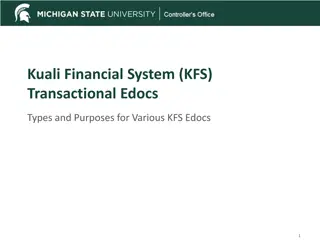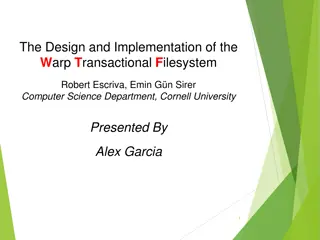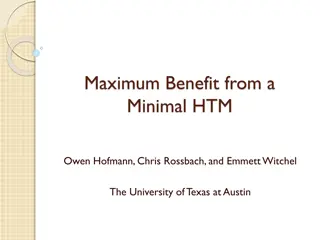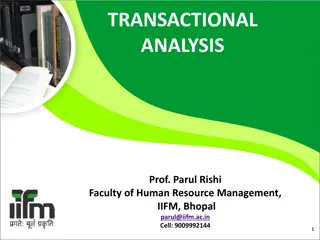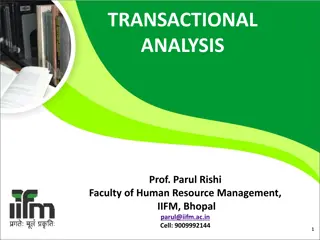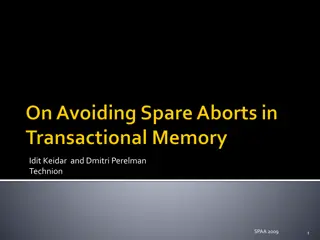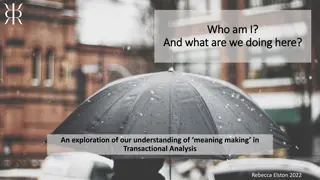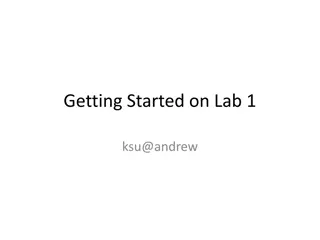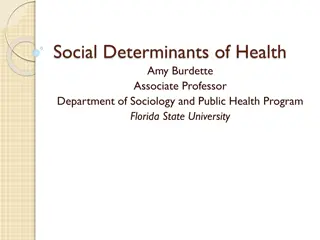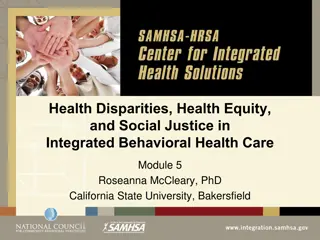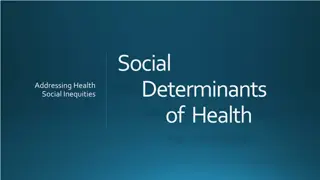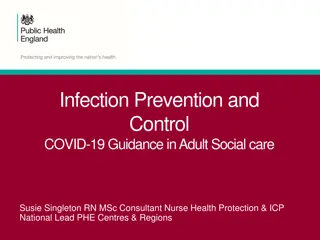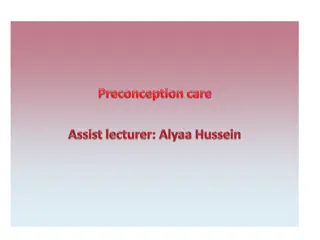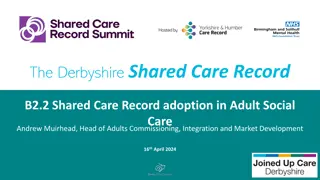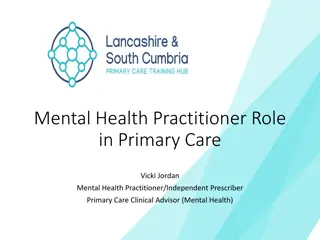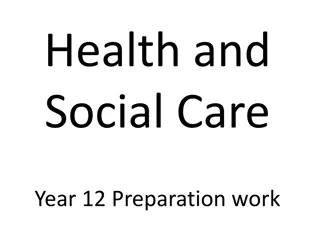Understanding Transactional Analysis in Social Care and Health Management
Explore the basics of Transactional Analysis (TA) and its application in social care and health management. Discover the PAC model, key authors, and how TA helps us understand communication and behavior patterns. Learn about the three ego states - Parent, Adult, and Child - and their impact on relationships within teams. Gain insights into how childhood experiences shape our interactions and reactions.
Download Presentation

Please find below an Image/Link to download the presentation.
The content on the website is provided AS IS for your information and personal use only. It may not be sold, licensed, or shared on other websites without obtaining consent from the author. Download presentation by click this link. If you encounter any issues during the download, it is possible that the publisher has removed the file from their server.
E N D
Presentation Transcript
An introduction to Transactional Analysis Applied to Managing Social Care and Health
Transactional analysis Objectives Understand the basic principles of the PAC model of transactional analysis Gain an insight into how we communicate with one another and what relevance this has to managing relationships within teams in social care and health
Key authors Berne, E., (1961) Lapworth, P & Sills, C. (2011)
Transactional analysis The model of transactional analysis has been widely applied to: Psychology Counselling Leadership and management Social care and health
What is transactional analysis? It is a model which helps us to make sense of how we act, interact and react with one another. A transaction is an exchange of words, expressed feeling, physical behaviour, shared thoughts, stated opinion or belief.
What is transactional analysis? It is based on the idea that some of our transactions are based on our childhood experiences and later become patterns of behaviour in our adult lives. Eric Berne s (1961) model consists of three ego states The Parent The Adult The Child
The PAC model The theory states that an individual consistently uses three ego states to express their personality. Parent: is an unconscious mimicking of how your parents acted or an interpretation of the parental action - so we can be nurturing or critical. Adult: this is a logical state without major emotion which is objective, thoughtful, uses evidence and fact. We behave in a respectful, equal and open-minded way Child: is a state in which we reacted as a child, either adapting or acting freely, for example uninhibited or silly. (Phillips, 2013)
The PAC model Parent originates not from our own direct experiences but those of our parents or others who had power over us which we have internalised Adult being appropriate to the situation, in the here and now Child a fixed state which has its origins in our own emotional childhood experiences. It has become stylised and repetitive over the years Harris (1973); Lapworth & Sills (2011)
How is transactional analysis relevant to managing relationships in social care and health? Let s consider three work based examples: Your manager is angry with you because you were late for a meeting. They shout at you and tell you that they can t trust you any more. 1. You have a phone call, email or conversation that something has 2. gone wrong today, your staff member says Please please help me I m really really struggling . Your immediate reaction is to immerse yourself into the situation. 3. A new member of staff is very keen and is taking extra time with individuals. This was great at first but he is now slowing down the work timetable. The individuals using services love him but the staff are complaining that things are not getting done. The team is unhappy How do you react? How should you react? Let s work through each example in turn.
How is transactional analysis relevant to managing relationships in social care and health? Lets apply the PAC model to the first work based example: Your manager is angry with you because you were late for a meeting. They shout at you and tell you that they can t trust you any more. Your manager s critical parent ego has responded by shouting at you, demonstrating anger and frustration (P). If you respond by leaving the room then the act itself demonstrates a child ego response (C). Continuing in a parent child interaction could perpetuate a conflict situation. (Lapworth & Sills, 2011; Jones, L., Bennett, CL., 2012)
How is transactional analysis relevant to managing relationships in social care and health? Resolving the conflict situation could be achieved in two different ways by moving towards an adult state: An adult response from your manager would have been an acknowledgment such as lets look at what s making you late . An adult response from you, would have been in the form of an apology yes, I can only apologise . [Giving a reason for example . We are going through an unusually high level of activity at the moment ]. (Lapworth & Sills, 2011; Jones, L., Bennett, CL., 2012)
For example P-C response Manager Employee An alternative adult response by either would resolve the conflict (Harris, 1973)
Why is transactional analysis relevant to managing relationships in social care and health? Transactional analysis is relevant to managing relationships in social care and health because it can help us understand the different transactions (the acts of behaviour) that staff portray when we communicate in different circumstances. It can help us to build resilient teams by steering individuals to find the Adult within ourselves and behave in a respectful, analytical, conscious, relaxed and attentive state.
How is transactional analysis relevant to managing relationships in social care and health? Lets apply the PAC model to the second work based example: You have a phone call, email or conversation that something has gone wrong today, your staff member says Please please help me I m really really struggling . Your immediate reaction is to immerse yourself into the situation. Your staff member has used a child ego state (C). This has resulted in a parental response feeling wanted, immersing yourself in the problem and taking over the situation or assuming a staff dependency (P). If this Child Parent interaction persists then the member of staff will continue to call every time there is a problem and does not develop appropriate decision making skills. (Lapworth & Sills, 2011)
How is transactional analysis relevant to managing relationships in social care and health? Resolving this situation could be achieved in two different ways: As a manager you could respond with how can I help or what kind of help do you need? or who do you think could best help you in this situation? this immediately invokes the individual s adult ego to think about the situation and available resources objectively and thoughtfully. In a supervision session you may wish to suggest that your staff member need only say can you help with this a moment? when requesting help. Again the aim of moving the interactions to the adult state is achieved. (Lapworth & Sills, 2011)
For example C-P transactions Employee Manager An alternative adult response by either would resolve the potential of dependency and promote self development. (Harris, 1973)
How is transactional analysis relevant to managing relationships in social care and health? Let s apply the PAC model to the third work based example: A new member of staff is very keen and is taking extra time with individuals. This was great at first but he is now slowing down the work schedule. The individuals using services love him but the staff are complaining that things are not getting done and they are refusing to work with him. Your team are responding in their collective child state (C). They are frustrated and angry.
How is transactional analysis relevant to managing relationships in social care and health? How do you respond to this situation? If you respond using your child ego state and ignore the situation for fear of making it worse, then they will continue to work in this way possibly until the new member of staff leaves. This is a Child-Child interaction. If you respond using your critical parent ego state and interact with the new member of staff saying something like do you realise you re making a mess of the work schedule? Then you are likely to create further conflict (P). Again moving the interactions to the adult ego state may be achieved through acknowledging and addressing the situation through individual supervision and team meetings asking staff members how they think the situation could be resolved through objective appraisal of the situation. (Lapworth & Sills, 2011)
For example C-C-P transactions Team Employee Manager Do you realise you re making a mess of things? I m ignoring you I don t care what people think, I m doing my job We re not working with him! An alternative adult response by the manager would demand an adult response from the team and from the employee and so resolve any potential isolation or conflict. (Harris, 1973)
Lets think about this for a moment If we can identify which ego state we are in then it will help us increase our responses in any given situation. Reflecting on past responses will help us. So, think about events in the past and ask yourself the following questions: Did I think, feel and behave in ways my parents (or other adult) used to when I was little? (P) Did I think, feel and behave in ways that were appropriate and direct here and now response to what was going on? (A) Did I think, feel and behave as I did at some time in my recent, mid or distant past?(C) Knowing this now how could I have behaved differently? (Lapworth & Sills, 2011)
How is transactional analysis relevant to managing relationships in social care and health? Relationships are central to the work of managing a successful team. They require mutual respect and empathy as well as a shared vision and goals. Transactional analysis believes that people are generally good, those who have emotional difficulties are whole human individuals who can take responsibility for themselves. Finally, all emotional and behavioural problems can be changed with the right resource and knowledge.
We hope that you have gained some understanding of transactional analysis
References Berne, E., (1961) Transactional Analysis in Psychotherapy: a systematic individual and social psychiatry. Grove Press. Pp232-46 Harris, TA., (1973) Transactional analysis- I m ok, you re ok. Arrow Books. Jones, L., Bennett, CL., (2012) Leadership in Health and Social Care: An introduction for emerging leaders. Banbury. Lantern Publishing. p39 Lapworth, P., Sills, C., (2011) An introduction to Transactional Analysis. London. Sage Publications.p25-38 Phillips, A., (2013) Developing Assertiveness Skills for Health and Social Care Professionals. London. Radcliffe Publishing. p 78-92


